June 4, 2025 | 13:50 GMT +7
June 4, 2025 | 13:50 GMT +7
Hotline: 0913.378.918
June 4, 2025 | 13:50 GMT +7
Hotline: 0913.378.918
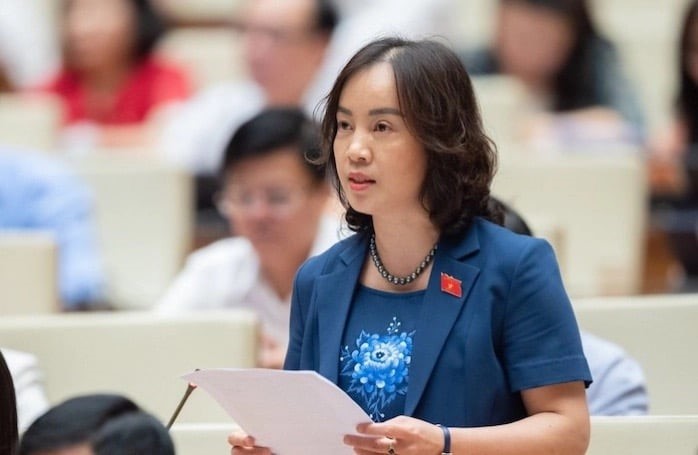
MA. Nguyen Thi Kim Anh, Standing Committee Member of the National Assembly Committee on Science, Technology and Environment.
In recent years, the Fourth Industrial Revolution, climate change, non-traditional security issues, natural disasters, the Russia-Ukraine war, and especially the COVID-19 pandemic have caused many countries to decide to readjust their development strategies in the direction of reducing external dependence, increasing autonomy, promoting internal force, and making changes to be more proactive in supply chains, especially in agro-products.
To solve the problem of autonomy, self-reliance, and promoting internal force for sustainable development, along with topics of digital transformation and artificial intelligence, agricultural issues become hotter across agendas at national, regional, and international levels.
Not outside that general trend, in the national development strategy, Vietnam is setting higher requirements on ensuring food security, environmental protection, responding to climate change, and promoting the development of socio-economic sectors in the context of population growth, strong urbanization, land degradation, agricultural land area gradually narrowing, etc. Of which, one of the fundamental solutions to synchronously resolve to ensure national food security in a sustainable way is to harmoniously manage to ensure a stable agricultural land area and ensure the rights of agricultural land users.
Policies on agricultural land are always one of the important contents of the land legal system. In particular, regulations on changing agricultural land use purposes are currently stipulated in the 2013 Land Law and detailed regulatory documents, which include key contents such as regulations on protecting the rights of users of converted agricultural land and regulations on control after land use purpose change.
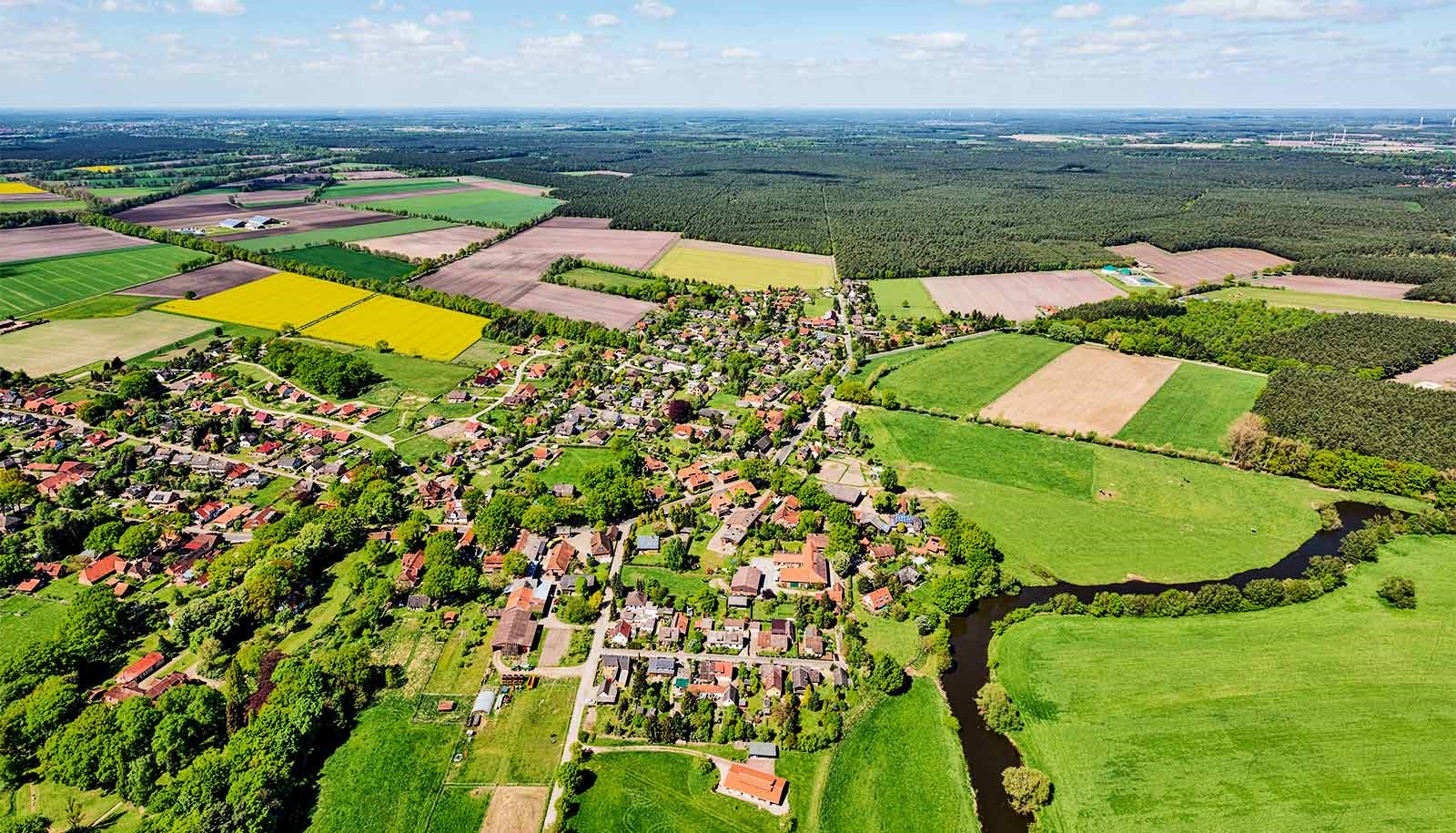
Along with the topics of digital transformation and artificial intelligence, agricultural issues are becoming hotter across agendas at the national level.
However, it is worth noting that the 2013 Land Law does not have the regulation recognizing the change of purpose as the right of agricultural land users, although users of agricultural land with changed purposes are protected by law, such as compensation from the State, support, and resettlement when land is recovered; the State’s support to protect and develop rice land, etc.
Policies and funding for users of agricultural land and rice land that are converted to non-agricultural purposes are still limited.
Synthetizing and assessing the socio-economic impacts of changing agricultural land use purposes for land users, especially farmers, households, and weak groups, have not been done yet or implemented on a small scale. Many households, individual agricultural producers, or their children do not have jobs and income and may even be affected by social evils after spending all the compensation and support money. Many rural areas became rich after agricultural land was taken away, but there was hidden political and social instability.
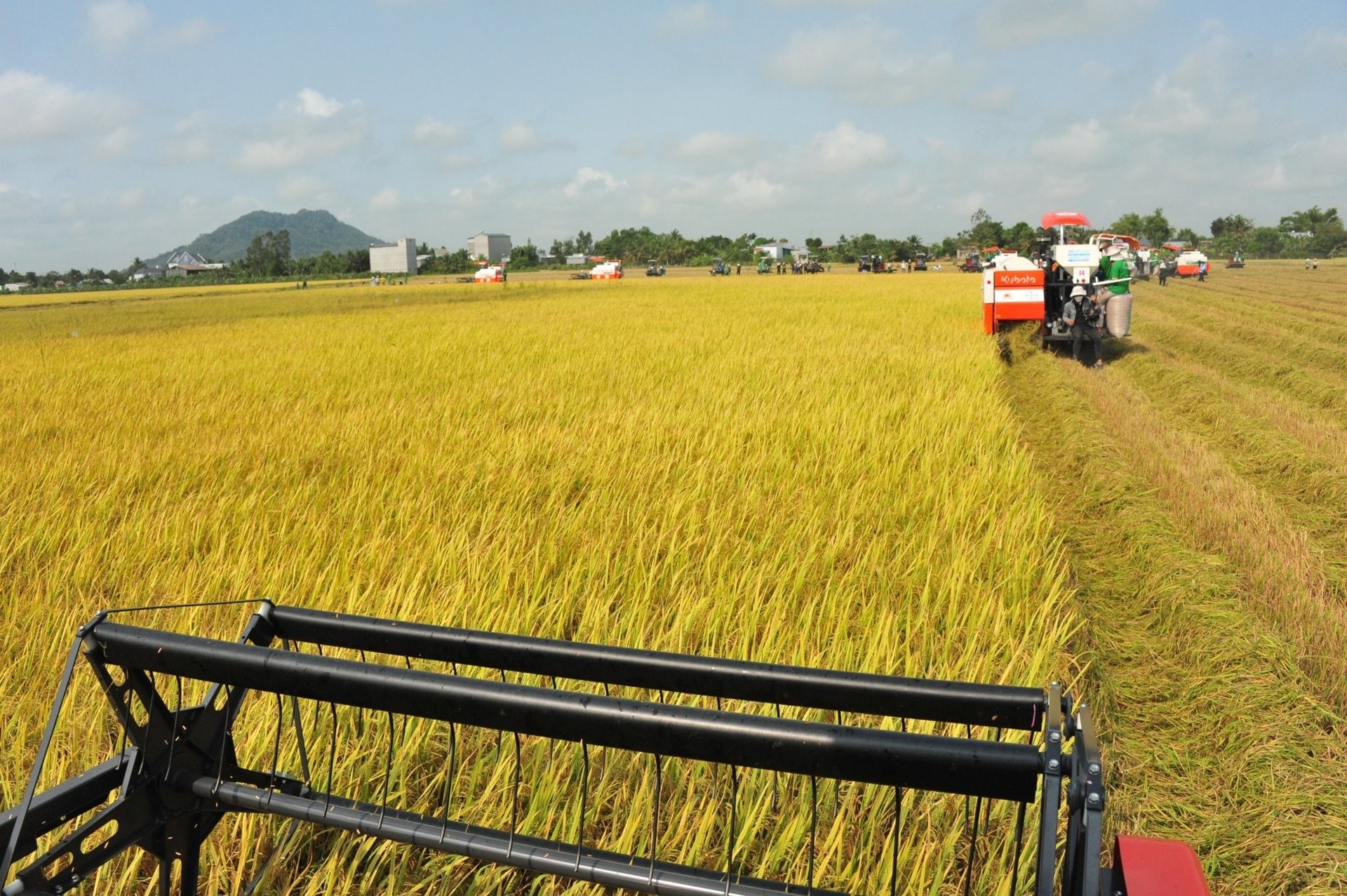
Synthetizing and assessing the socio-economic impacts of changing agricultural land use purposes for land users, especially farmers, households, and weak groups, have not been done yet or implemented on a small scale.
Ensuring the rights of land users when changing agricultural land use purposes needs to be regulated specifically and in detail in the Land Law (amended). Accordingly, the Draft Land Law (amended) needs to supplement and concretize the following contents:
First, supplement regulations to protect the rights of users of converted rice land, especially the rights of weak groups. Currently, both the 2013 Land Law and the Draft (amended) Land Law have regulations and conditions to allow the conversion of the rice land use purpose to other purposes (project implementation), including conditions or requirements that the converted person has to implement, such as paying a sum of money to protect and restore degraded rice land areas, receiving compensation, etc.
However, regulations on protecting the rights of users of converted rice land have been shown much, especially for weak groups. Therefore, the Draft (amended) Land Law must institutionalize this content in the principles and conditions for changing the purpose of rice land use.
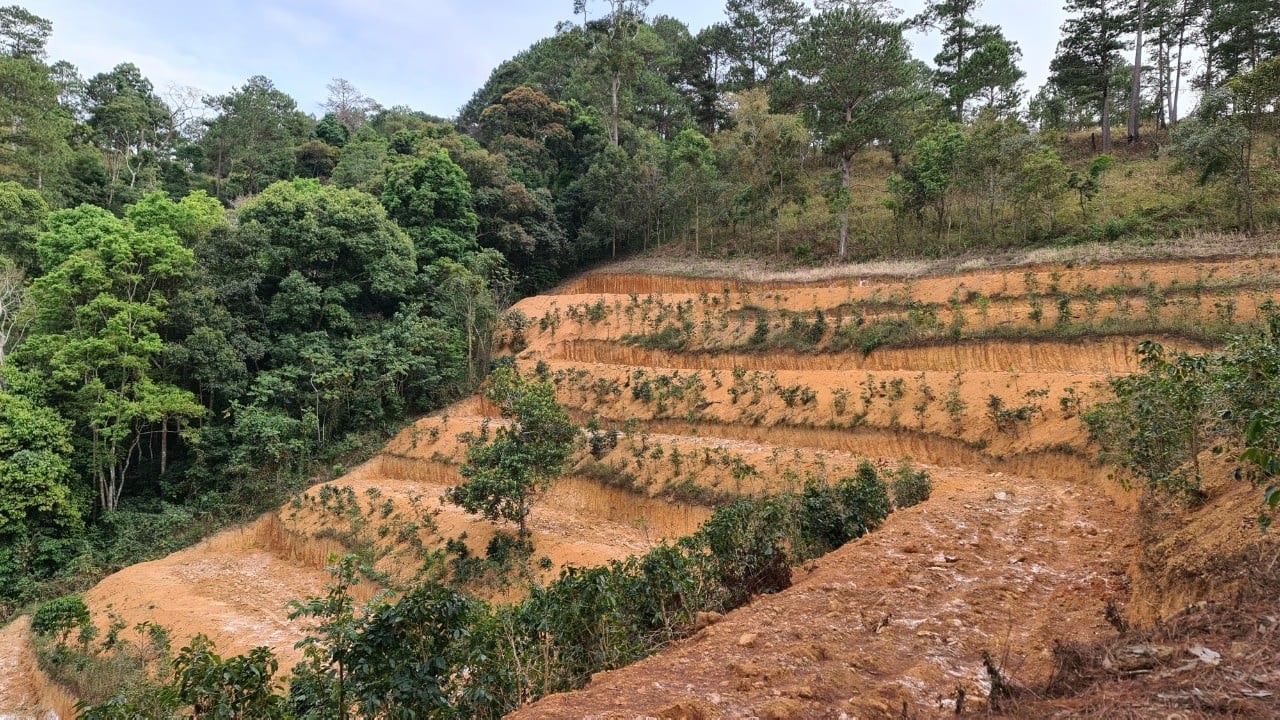
Ensuring the rights of land users when changing the purpose of agricultural land use needs to be regulated specifically and in detail in the Land Law (amended).
Specifically, it is proposed to supplement the regulation on general rights of land users with the “right to change the land use purpose according to the provisions of law". This aims to ensure the rights and interests of land users and, on the other hand, limit the abuse of land acquisition to implement socio-economic development projects.
Rice land users must be known and provided with full information about the planning of the converted area and must be consulted when deciding to allow the purpose change. The conversion plan must ensure the rights of rice growers in aquisition and compensation according to market principles.
It is necessary to assess socio-economic impacts, including calculating the groups of people affected when they no longer have land to grow rice, especially for weak groups such as the elderly, the disabled, people with meritorious services, women, and children, to have appropriate support policies in addition to support for training, career change, and job search.
Second, clearly define the authority to allow change of rice land use purpose, of which for small-scale projects, decentralize to localities, and at the same time, supplement regulations on strictly prohibiting the project’s division. Projects under the jurisdiction of local authorities also need to consider amending the regulation on the condition requiring a Resolution of the Provincial People's Council because the Provincial People's Council meeting twice a year cannot resolve all the needs of organizations and individuals. Therefore, it is proposed to give decision-making power to the Standing Agency of the People's Council to ensure flexibility, timeliness, and response to the wishes of land users.
Third, supplement specific regulations on the conditions and responsibilities of investors when allowed by state agencies to change the purpose of using rice land. Of which, there needs to be more specific and appropriate regulations on paying a sum of money so that the State can replenish the lost land area specializing in wet rice farming or increase the efficiency of using rice land. It is recommended to calculate the amount payable based on the project’s effective value.
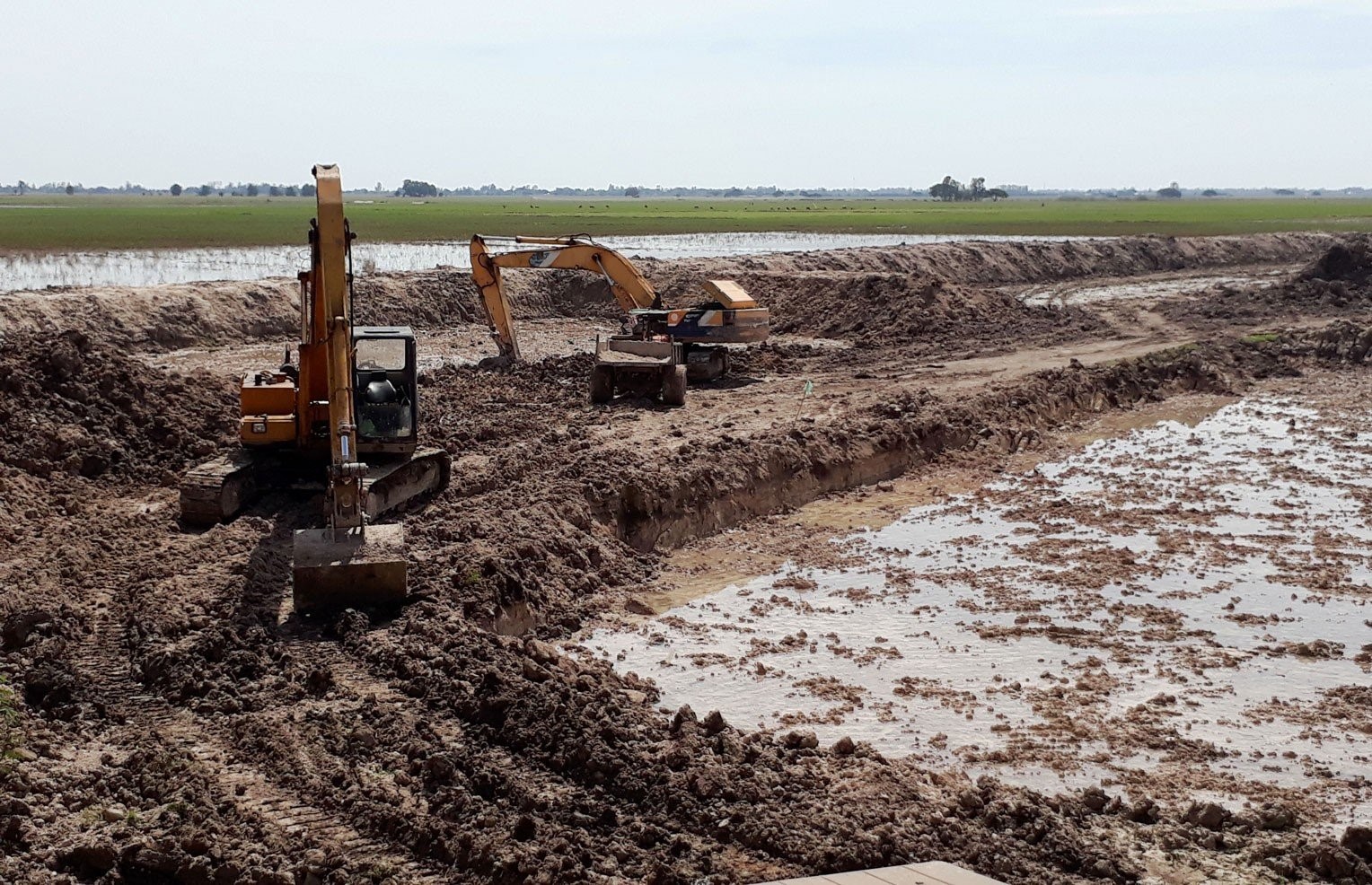
It is necessary to supplement specific regulations on the conditions and responsibilities of investors when allowed by state agencies to change the purpose of using rice land.
Fourth, implement regulations on control after changing the rice land use purpose to non-agricultural purposes (for project implementation). Currently, many projects that have changed the purpose of using rice land beyond the prescribed time have not been handled, creating a bad precedent in management as well as affecting the resources and rights of rice land users. To limit this situation, the Draft (amended) Land Law needs to clearly stipulate what "force majeure case" is.
Design additional regulations on the responsibilities of agencies and persons with authority to allocate land, lease land, and change land use purposes in controlling the law enforcement process, especially in cases of non-compliance.
Provide clear administrative procedures to avoid taking advantage of changing land use purposes multiple times to speculate on land and cause confusion in the land market. At the same time, it is necessary to develop mechanisms and sanctions to control the conversion of rice land use purposes; strictly implement land acquisition in the above-mentioned cases of land law violations; and even as for investors with a history of poor compliance with the law, they should be limited or not allowed to change purposes.
Translated by Huyen Vu Thu

(VAN) VAAS and numerous Vietnamese enterprises have signed cooperation agreements with Japanese partners to promote agricultural technology and trade connectivity.
/2025/05/29/5625-12-214801_567.jpg)
(VAN) Provincial mergers in the Mekong Delta promise to streamline administration, expand inter-provincial raw material areas, and foster close linkages in agricultural value chains, benefiting both businesses and cooperatives.

(VAN) Merging Mekong Delta provinces contributes to the expansion of agricultural raw material areas, addressing previous constraints caused by provincial boundaries. Additionally, this expansion will reduce costs and strengthen linkages between businesses, cooperatives, and farmers.
/2025/05/29/1043-2-153730_145.jpg)
(VAN) The Government's policy to merge provincial-level administrative units opens up major opportunities for the Mekong Delta region to reshape its agricultural development strategy toward large-scale production, effective regional linkages, and sustainability.

(VAN) The mutual export of agrifood products between the European Union (EU) and the United Kingdom (UK) must occur again without certification, border controls or other red tape. This was agreed at the UK-EU summit.
/2025/05/22/5121-2-173645_677.jpg)
(VAN) NBSAP Tracker identifies strengths and areas for improvement in the National Biodiversity Strategy, based on each region’s priorities and capacities.

(VAN) The draft amendment to the Circular on rice export trading stipulates a periodic reporting regime for rice exporting enterprises.